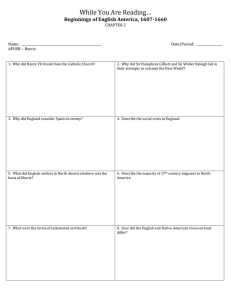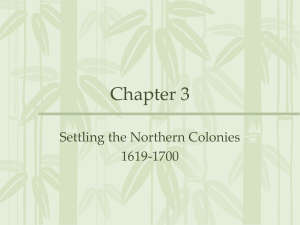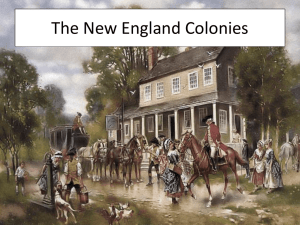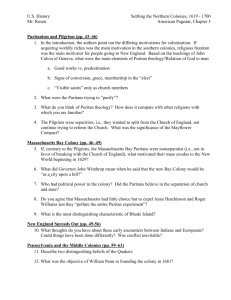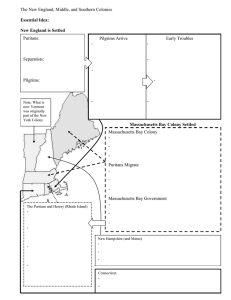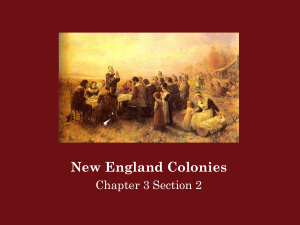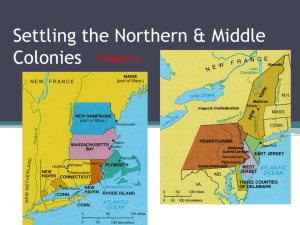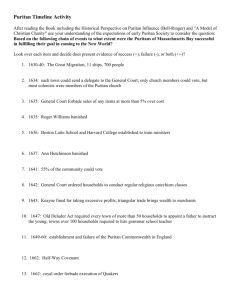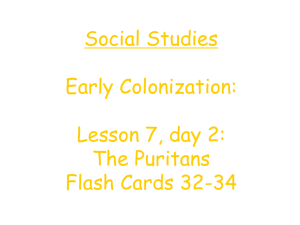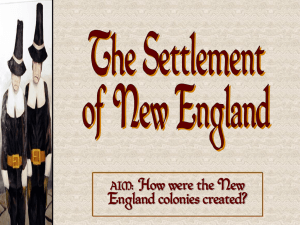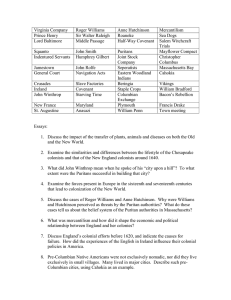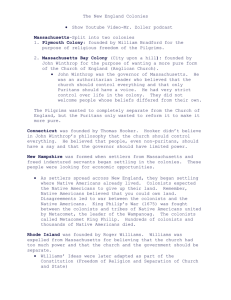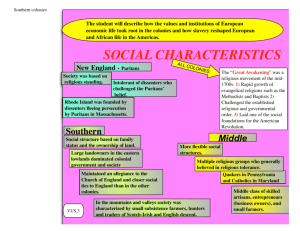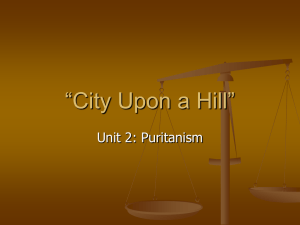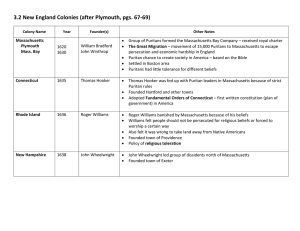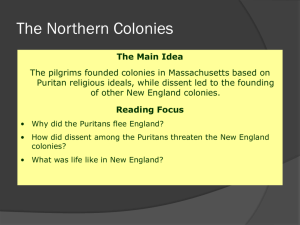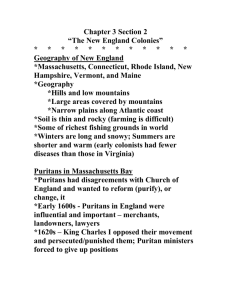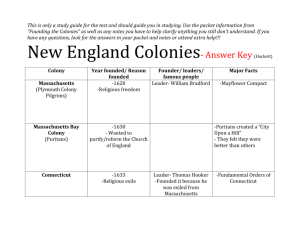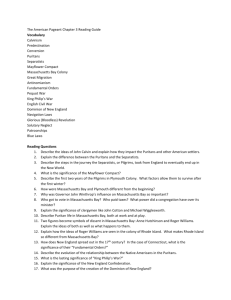7G_03NA_13_Colonies_..
advertisement
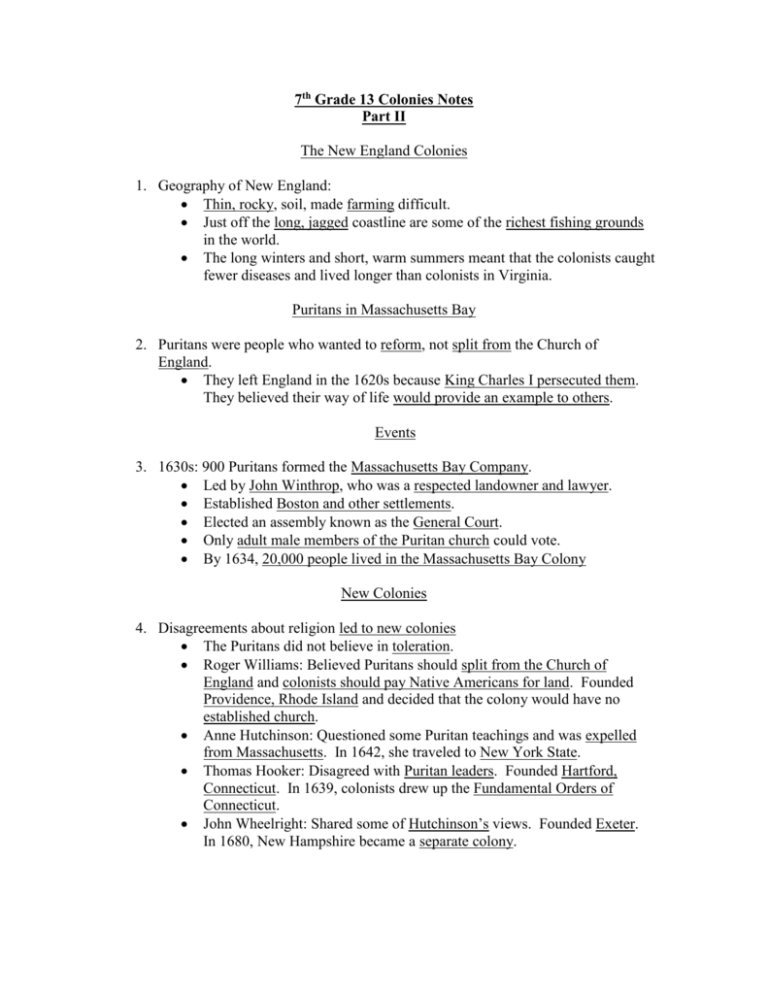
7th Grade 13 Colonies Notes Part II The New England Colonies 1. Geography of New England: Thin, rocky, soil, made farming difficult. Just off the long, jagged coastline are some of the richest fishing grounds in the world. The long winters and short, warm summers meant that the colonists caught fewer diseases and lived longer than colonists in Virginia. Puritans in Massachusetts Bay 2. Puritans were people who wanted to reform, not split from the Church of England. They left England in the 1620s because King Charles I persecuted them. They believed their way of life would provide an example to others. Events 3. 1630s: 900 Puritans formed the Massachusetts Bay Company. Led by John Winthrop, who was a respected landowner and lawyer. Established Boston and other settlements. Elected an assembly known as the General Court. Only adult male members of the Puritan church could vote. By 1634, 20,000 people lived in the Massachusetts Bay Colony New Colonies 4. Disagreements about religion led to new colonies The Puritans did not believe in toleration. Roger Williams: Believed Puritans should split from the Church of England and colonists should pay Native Americans for land. Founded Providence, Rhode Island and decided that the colony would have no established church. Anne Hutchinson: Questioned some Puritan teachings and was expelled from Massachusetts. In 1642, she traveled to New York State. Thomas Hooker: Disagreed with Puritan leaders. Founded Hartford, Connecticut. In 1639, colonists drew up the Fundamental Orders of Connecticut. John Wheelright: Shared some of Hutchinson’s views. Founded Exeter. In 1680, New Hampshire became a separate colony.
